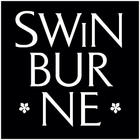Bachelor of Media and Communication / Bachelor of Business
Bachelor of Media and Communication / Bachelor of Business
The Bachelor of Media and Communication / Bachelor of Business equips students with knowledge and skills essential for a career that encompasses the challenging and dynamic area of media and communication and the business sector. You’ll learn how to think critically and to develop problem-solving skills, research issues and analyse…
Categories
COURSE DESCRIPTION
The Bachelor of Media and Communication / Bachelor of Business equips students with knowledge and skills essential for a career that encompasses the challenging and dynamic area of media and communication and the business sector.
You’ll learn how to think critically and to develop problem-solving skills, research issues and analyse information. Gain an understanding of media and media production, public relations and the impact of design on these specialised areas of communication.
Major for Bachelor of Media and Communication
Choose a major:
Creative Writing and Literature, Digital Advertising Technology, Games and Interactivity, Professional Writing and Editing, Public Relations, Social Media
Major for Bachelor of Business
Choose a major:
Accounting, Business Administration, Economics, Entrepreneurship and Innovation, Finance, Financial Planning, Human Resource Management, Information Systems, International Business, Logistics and Supply Chain Management, Management, Marketing, Sports Management
Course learning outcomes
Upon successfully completing the Bachelor of Media and Communication / Bachelor of Business, graduates will be able to:
- demonstrate knowledge, conceptual understanding, technical skills and expertise in the broad field of media and communication
- formulate arguments that draw on and critique the differences between relevant theories and evidence as they pertain to the field of media and communication
- exercise initiative and judgment in planning, problem-solving and decision-making in professional practice and/or scholarship, individually and in collaboration with others
- demonstrate critical analysis, creativity and problem-solving in relation to a range of media and communication activities and processes
- recognise and reflect on social, cultural, legal and ethical issues relating to media and communication industries in local and international contexts
- apply a broad understanding of an audience through interpreting and communicating ideas, problems and arguments in a range of media and communication contexts and formats, using the English language
- reflect critically on their performance and/or scholarship and use this to improve their own creative and productive outcomes
- apply research methodology relevant to the field of media and communication
- define and integrate theoretical principles applicable to business and apply those principles in a range of practices
Career opportunities
The Bachelor of Media and Communication / Bachelor of Business provides students with unique skills and knowledge to pursue careers in a wide variety of industries.
REQUIREMENTS
If you’re currently in Year 12 or have completed Year 12 in the last seven years, you’ll be considered for admission to undergraduate courses primarily based on whether you have successfully completed the Victorian Certificate of Education (VCE), or an interstate or international Year 12 qualification.
English language requirements
Satisfactory completion of one of the following:
- Swinburne’s English for Academic Purposes (EAP 5 Advanced level) with overall 65%, all skills 65%
- minimum IELTS overall band of 6.0 (Academic Module) with no individual band below 6.0
- TOEFL iBT (internet-based) – 64 (no less than 13 in reading, 12 in listening, 18 in speaking, 21 in writing)
- Pearson (PTE) minimum score of 50 (no communicative skills less than 50)
- C1 Advanced – 169, no band less than 169
- any other equivalent assessment of English language proficiency.
EDUCATIONAL INSTITUTION
Swinburne University of Technology is a public university based in Melbourne- that is among the top 3% of universities in the world. The University focuses on science, technology and innovation and offers courses well recognised by professional organisations. The Good Universities Guide 2016 awarded the University five stars for both graduate satisfaction and generic skills and four stars for teaching quality. It also features in the top 200 ranked universities in the QS Graduate Employability Rankings; and enjoys close ties with industry- providing students with invaluable workplace experience.




